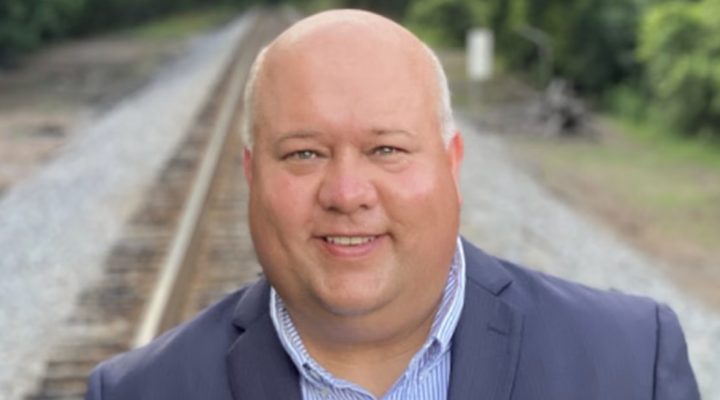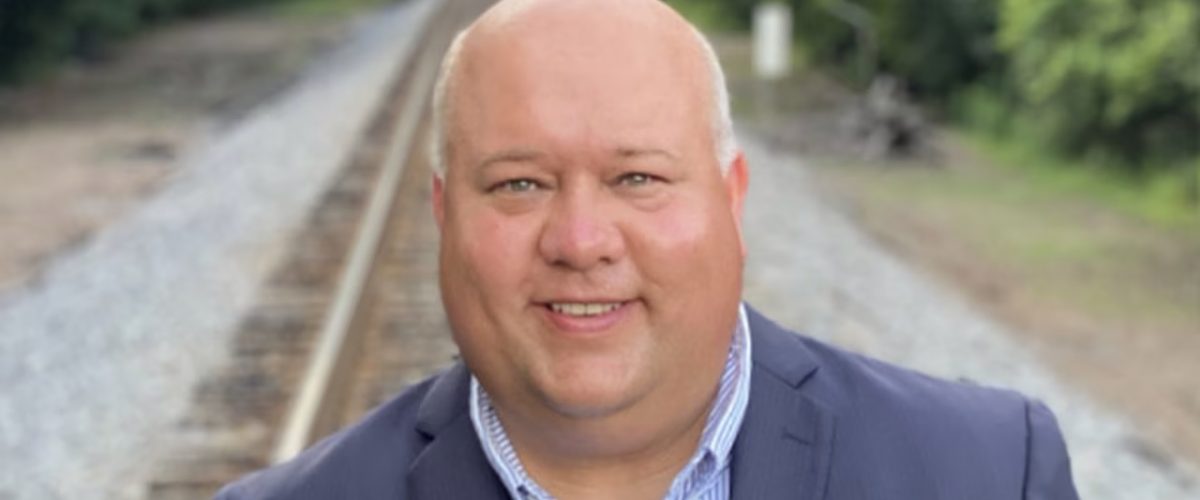I did not know F.L. “Bubba” Copeland, but I probably have more insights into his tragic story than most Baptist pastors.
Copeland, mayor of Smiths Station, Ala., and pastor of First Baptist Church in nearby Phenix City, took his own life Nov. 3. He took that dramatic action after an online news outlet, 1819 News, outed him as a cross-dresser with an online persona far saucier than what one would expect from a small-town Baptist pastor.
1819 News at one time was owned by the Alabama Policy Institute, a conservative think tank.
Almost by accident — or perhaps divine providence — I have been an ally to the transgender community for the past seven years. What I’ve learned in that work and from the hundreds of transgender people I’ve talked with helps me comprehend Bubba Copeland’s situation.
“It is important to understand what Copeland appears to have been is not ‘transgender’ but a ‘cross-dresser.’”
It is important to understand what Copeland appears to have been is not “transgender” but a “cross-dresser.” In our current political climate fixated on torturing transgender people and eliminating drag performances, this may be a hard distinction to comprehend.
Most cross-dressers are not transgender, although many transgender people begin their journeys with what feels like a daring act of dressing as the gender they know they are inside. There are important distinctions between cross-dressers and transgender people, and there also are differences between cross-dressers and drag performers.
Cross-dressers do not want to change genders. They find pleasure or escape in dressing in a different persona. They do not suffer from gender dysphoria the way truly transgender people do. And there are more of them in America today than there are transgender people.
Transgender people believe they are — internally — another gender. Cross-dressers want to pretend to be another gender temporarily. Drag queens (or less commonly kings) are entertainers who may be neither transgender nor cross-dressers. They are, first and foremost, entertainers.
Yes, it may appear difficult to sort out the differences, but it’s not that hard if you’re willing to try. The problem is today’s pastors and politicians who are crusading against transgender identity intentionally mix it all up. They want you to believe this is all part of the same “sinful” behavior, which is why they draw such strict lines between masculinity and femininity. (For more on this, see Susan Shaw’s excellent lecture on “10 Lies Christians Tell About Queer People.”)
Based on the news accounts of Copeland’s situation, it appears he also was acting out some sexual fantasies and — without a doubt — engaged in some online conversations that went far beyond the language most churchgoers would want to hear from their pastors. That fact must not be used to castigate all cross-dressers or transgender people or drag performers.
You may make the case that Copeland, as a pastor and elected official, should have been held to a higher standard of personal behavior than people in the pew or average citizens. That may be true. But we also know the trauma of Copeland’s being outed — and the venom he received from other religious leaders — is dumped daily on people with far lower profiles who are not pastors or politicians.
“Focus on the Family evangelicals have so villainized anyone who doesn’t meet their strict gender hierarchy and sexual purity standards that fear is the driving factor.”
Focus on the Family evangelicals have so villainized anyone who doesn’t meet their strict gender hierarchy and sexual purity standards that fear is the driving factor. Fear of being found nonconforming leads people to take their own lives. There is no grace for variance, no toleration of difference.
And in that regard, Focus on the Family and those hyping our current culture of fear have blood on their hands.
To his credit, Copeland does not appear to have been a hypocrite; there is no evidence he preached against the thing he secretly did.
Crossing-dressing, gender dysphoria and the thrill of performing in drag are not my personal issues. And they may not be yours either. But all of us have issues. All of us are nonconforming in some ways. All of us have secrets we’d rather not be exposed.
The Golden Rule seems apt here: “Do unto others as you would have them do unto you.” Jesus also said it another way: “Love your neighbor as yourself.”
We can’t know precisely what drove Bubba Copeland to take his own life, but we can surmise it was the pain of knowing who he was did not line up with what his community and culture said was acceptable. Please note: There’s a difference between setting ethical standards for pastors and politicians and setting standards for who is allowed to live as a human.
What should we learn from all this?
We must learn to talk about gender and sexuality in precise ways. Just as children are taught to talk about body parts using correct language, we adults must learn to talk about gender identity and sexual orientation using correct language. For example, calling someone “a transgender” is a slur. They are a transgender person. Words matter. Knowing the difference between a cross-dresser, a transgender person and a drag queen also would be helpful.
We need to acknowledge what the Bible does and doesn’t say. Yes, we can debate different understandings of the six “clobber passages” used to condemn homosexuality. But there are no such passages anywhere in the Bible addressing transgender identity, cross-dressers or drag queens.
Oh, yes, there’s Deuteronomy 22:5 — “A woman shall not wear a man’s apparel, nor shall a man put on a woman’s garment; for whoever does such things is abhorrent to the Lord your God.”
“Remember when this verse was used to say women couldn’t wear pantsuits to church?”
Remember when this verse was used to say women couldn’t wear pantsuits to church? I dare you to go to church next Sunday and calculate the percentage of women there wearing pants or some variation on what used to be considered “men’s” clothing. And who determines what is men’s clothing and what is women’s clothing? There is no divine mandate from on high that women’s shirts must button on the right and men’s on the left.
And remember in the first century men wore togas that would be considered feminine clothing today. Moses and the children of Israel were not running around the wilderness wearing Levi’s 501 jeans.
This odd passage from Deuteronomy is part of a larger discourse on keeping things separate, which was to teach the children of Israel their distinctiveness from other people and tribes. It is not about cross-dressing, and it surely isn’t about transgender identity.
We need to value life over forced conformity. The meanness of the modern evangelical juggernaut has made gender and sexuality a matter of life and death while claiming they are “pro-life.” Sheer meanness is driving people to death.
We need to distinguish variant behavior from abusive behavior. Best I can tell, Bubba Copeland was not accused of abusing anyone. He was accused of being different, of behaving in ways outside the accepted community standards. But we’ve seen no report of him harming anyone else in doing so. That is more than can be said for the true abusers leaders of the Southern Baptist Convention are intent on protecting from prosecution. (Note: Further information indicates some of Copeland’s online posts did, in fact, harm others whom he named, and that demands calling out as abusive.)
We must admit that senseless political rhetoric affects real people. One of the first highbrow jokes I learned as a teenager was the old saw about the political candidate in days of yore who started a whisper campaign against his opponent by saying, “You know, his sister is a thespian!”
Today’s Republican Party — desperate for new boogeymen to scare voters to the polls — has homed in on gender identity as a winning ticket. It works because so few people understand gender identity and the community of gender-variant people is so small it cannot stand up for itself. But these are not abstract concepts. These are real people.
You may not be able to win elected office and create change. You may not hold a public platform anywhere to give voice to a kinder way. But you — and all of us — can learn to watch the words you say and ask whether they are spewing life or death.
A corollary is that you don’t have to have an opinion on everything. It’s OK to say you don’t understand some things. And when you don’t understand, don’t speak.
Words killed Bubba Copeland. That’s one thing we have the power to control.
Mark Wingfield serves as executive director of Baptist News Global. He is the author of Honestly: Telling the Truth About the Bible and Ourselves.


